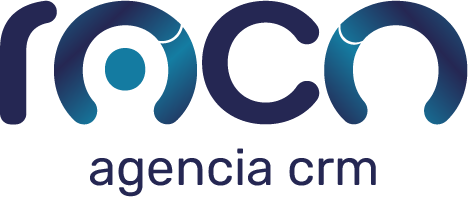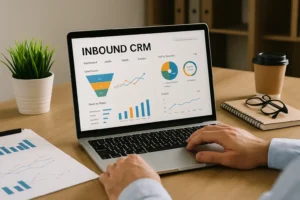El uso de herramientas digitales para mejorar la gestión comercial ha cobrado fuerza en empresas de todos los tamaños. Entre estas soluciones, los sistemas CRM se han consolidado como una opción estratégica para optimizar la relación con los clientes.
En este artículo abordaremos el tema CRM ventajas y desventajas, destacando los beneficios que puede ofrecer su implementación, los posibles retos a considerar y los criterios para determinar si es la solución adecuada para tu empresa.
¿Qué es un CRM?
Un sistema CRM (Customer Relationship Management) es una plataforma que permite centralizar, organizar y analizar toda la información relacionada con clientes actuales y potenciales.
Se ha convertido en una herramienta importante dentro de los sistemas de colaboración empresarial, permitiendo alinear equipos de ventas, marketing, servicio al cliente y administración en torno a una misma base de datos y estrategia.
Elementos de un Sistema CRM
Entre los elementos de un sistema CRM se encuentran la gestión de contactos, el seguimiento de oportunidades, la automatización de tareas, los paneles de análisis y las integraciones con otras herramientas. Estos componentes trabajan en conjunto para mejorar la productividad, la personalización del servicio y la toma de decisiones estratégicas.
Zoho CRM Ventajas y Desventajas
Como toda solución tecnológica, un CRM tiene puntos fuertes y debilidades. A continuación, analizaremos las principales ventajas y desventajas de CRM, basadas en nuestra experiencia con la implementación de Zoho CRM en empresas.
Si quieres conocer más sobre cómo se implementa esta solución en nuestro país, visita nuestra página Agencia de CRM en Colombia y agenda una asesoría gratuita.
Ventajas del CRM
1. Mejora en la gestión de relaciones con clientes
Un sistema CRM permite conocer en profundidad a los clientes: desde su historial de compras hasta sus preferencias, interacciones pasadas y necesidades futuras. Esta centralización mejora la calidad del servicio, personaliza la comunicación y fomenta la fidelización.
2. Automatización de procesos
Con un CRM, es posible automatizar tareas repetitivas como seguimientos, envíos de correos, recordatorios y actualización de estados de ventas. Dentro del análisis de CRM ventajas y desventajas, esta automatización destaca como uno de los principales beneficios, liberando tiempo, reduciendo errores humanos y mejorando la eficiencia operativa.
3. Análisis y toma de decisiones informadas
Gracias a paneles e informes en tiempo real, los gerentes pueden evaluar el rendimiento del equipo comercial, identificar oportunidades y ajustar estrategias, esto es fundamental en cualquier análisis de CRM características ventajas y desventajas.
4. Fomento de la colaboración entre equipos
Un CRM permite que distintos departamentos accedan y actualicen la información del cliente en tiempo real, eliminando silos de información, mejorando la coordinación y fortaleciendo los sistemas de colaboración empresarial.
5. Escalabilidad y personalización
Los CRMs modernos como Zoho permiten adaptar el sistema según el crecimiento del negocio. Dentro del análisis de CRM ventajas y desventajas, esta capacidad de escalabilidad resulta clave. Desde pequeñas empresas hasta corporaciones, el CRM puede ampliarse o ajustarse según las necesidades cambiantes.
Desventajas del CRM
1. Inversión inicial y mantenimiento
Una de las desventajas de Zoho CRM o de cualquier otra plataforma es el costo de implementación, capacitación y soporte. Aunque es una inversión rentable a largo plazo, puede representar una barrera inicial, especialmente para PYMEs.
2. Curva de aprendizaje
La adopción de un nuevo sistema requiere capacitación. Algunos equipos pueden mostrar resistencia al cambio o tardar en adaptarse a las nuevas herramientas.
3. Dependencia de la calidad de los datos
El CRM es tan útil como la información que contiene. Datos desactualizados, incompletos o mal gestionados pueden afectar negativamente el rendimiento del sistema.
4. Dependencia tecnológica
Cualquier interrupción del servicio o problema técnico puede afectar temporalmente la operación. Por eso es necesario contar con un proveedor confiable y un buen soporte técnico. Si quieres recibir acompañamiento experto, puedes agendar una asesoría con nuestro equipo de consultores CRM.
¡Toma una Decisión Informada sobre tu Próximo CRM!
Evaluar un sistema CRM ventajas y desventajas no solo implica revisar funcionalidades, también se debe analizar si la solución se adapta a tus procesos, si ofrece soporte local, si se integra fácilmente con otras herramientas y si puede escalar junto al crecimiento de tu negocio.
En Agencia Roco CRM, como partner autorizado de Zoho, brindamos soluciones avaladas directamente por la plataforma, garantizando respaldo y calidad en cada etapa del proceso. Nos especializamos en la implementación de Zoho CRM, con acompañamiento desde el diagnóstico inicial hasta la puesta en marcha y el soporte continuo.







